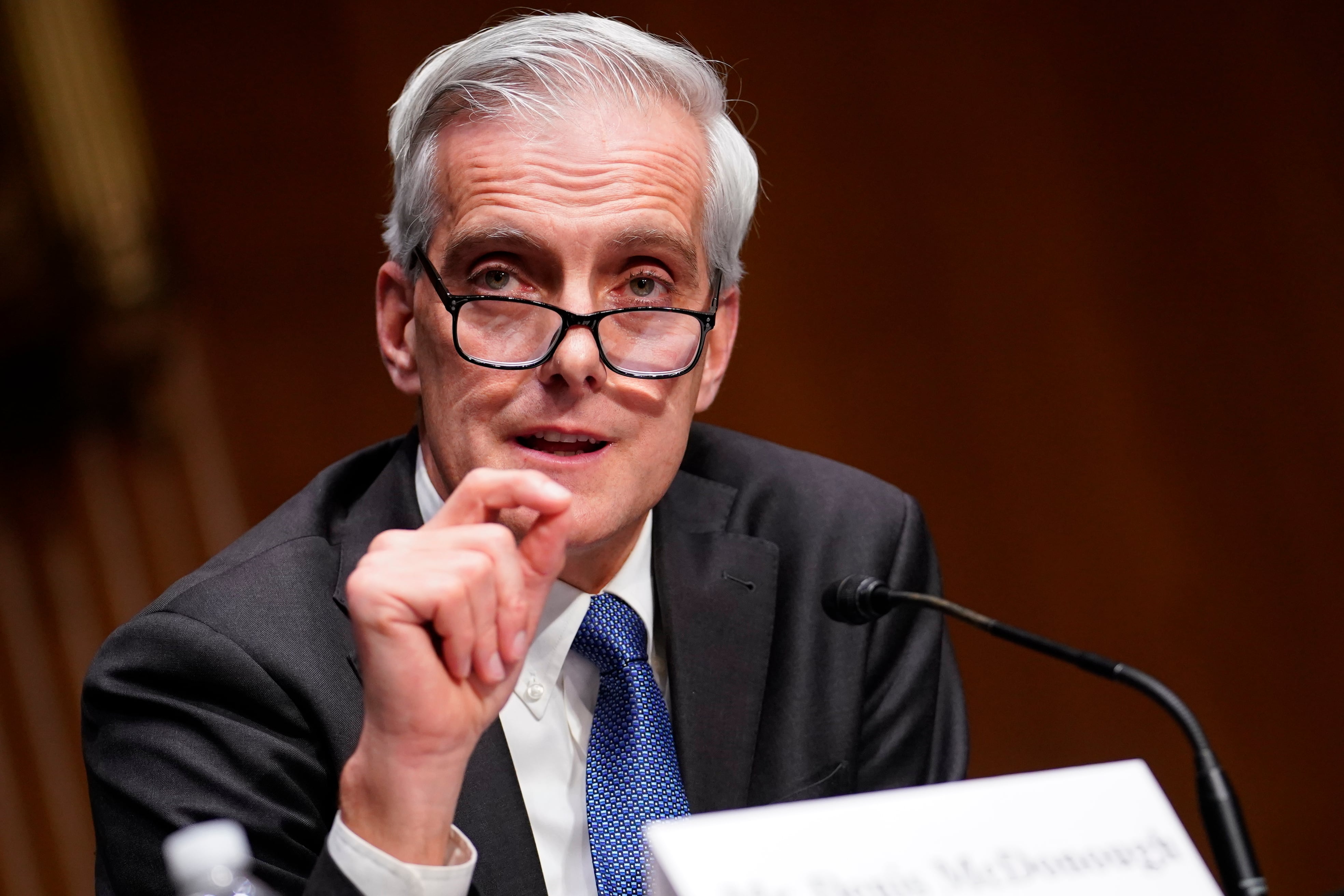Republican House lawmakers want to know if the Department of Veterans Affairs’ embattled electronic health records system is responsible for the recent deaths of two Ohio veterans, and whether the entire program needs to be scrapped.
In a letter to VA Secretary Denis McDonough, House Veterans Affairs Committee ranking member Mike Bost, R-Ill., and Ohio GOP Reps. Mike Carey and Troy Balderson said department officials need to supply more information on the deaths in order to restore faith in the records system, VA leadership and the department as a whole.
“The [medical records project] has been plagued by safety risks and technical problems in addition to exorbitant costs,” the group wrote. “These two incidents involved different combinations of system and human error. While mistakes undoubtedly happen in health care, the [new system] is clearly compounding and worsening the potential for human error.”
“It was irresponsible to subject our veterans to such a flawed and dangerous system, and the situation in Columbus [Ohio] and the other VA medical centers using it is unacceptable.”
RELATED

VA officials did not respond to requests for information on the deaths, instead referring to an announcement in October that all planned deployments of the Oracle Cerner records platform would be delayed until June 2023 “to address challenges with the system and make sure it is functioning optimally for veterans and for VA health care personnel.”
In the letter, the Republican lawmakers said that both deaths pointed to serious problems with the system, which is in use at the VA Central Ohio Healthcare System.
In the first case, a veteran connected to the medical center in Columbus, who was prescribed an antibiotic after a hospital visit, never received the medication because “the electronic health record provided erroneous tracking information for the prescription.”
The veteran later died of medical complications.
Lawmakers said In the second case, a veteran missed a regular medical check-up but that information was not properly transferred into the new system. As a result, “no outreach was attempted to reschedule the appointment.”
The man showed up several months later at the medical center suffering from alcohol withdrawal symptoms, and died a few days later.
Both cases point to serious system flaws, the lawmakers argued. They’re asking for VA officials to “get to the bottom of these patient deaths in Columbus as quickly as possible.”
The 10-year, $16 billion records overhaul was put in motion by President Donald Trump and was meant to bring veterans’ health records in line with military files. In the past, the two agencies used separate records systems with intermediary programs to transfer data between them, causing information issues for patients and physicians.
But the rollout of the new software has featured numerous setbacks and delays. Earlier this year, an inspector general report found that at least 148 veterans were harmed by medical record mistakes and shortfalls after the system was implemented at initial sites in Washington state last year.
In addition, researchers found the system had failed to deliver more than 11,000 orders for specialty care, lab work and other services, all without alerting health care providers the orders had been lost.
In an interview with Military Times last week, McDonough acknowledged that “the [records] program and the technology is not living up to the billing. Our vets deserve better.”
But he also said officials are not ready to give up on the massive records program yet.
“This is not going to be a decision that I arrive at through my emotion,” he said. “If it’s not working for vets, we’re not going to do it. But we’re also not just gonna throw it away because we get tired.
“We’re gonna stay on this thing to make it work because the idea is so profoundly in the national interest. But if it’s not workable, we’re not going to just spin our wheels.”
RELATED

VA officials in recent weeks have sent out tens of thousands of letters to patients at medical facilities using the new records system to inform them that they “may have been impacted by these system challenges,” and to ensure they are able to schedule appointments, receive medications and fulfill other medical needs.
Bost — who is in line to take over as the chairman of the House Veterans’ Affairs Committee if Republicans secure the majority in the House — said in the letter that he recently visited the Columbus medical center and heard from staff that the new system has “undermined health care delivery, safety, operations and morale.”
Officials from Oracle Cerner have said they are making improvements to the system and working closely with VA officials on a new deployment schedule to get the project back on track. The system was expected to be installed at all VA medical facilities by the end of 2028, but that timeline has been called into question following the numerous delays.
Leo covers Congress, Veterans Affairs and the White House for Military Times. He has covered Washington, D.C. since 2004, focusing on military personnel and veterans policies. His work has earned numerous honors, including a 2009 Polk award, a 2010 National Headliner Award, the IAVA Leadership in Journalism award and the VFW News Media award.




